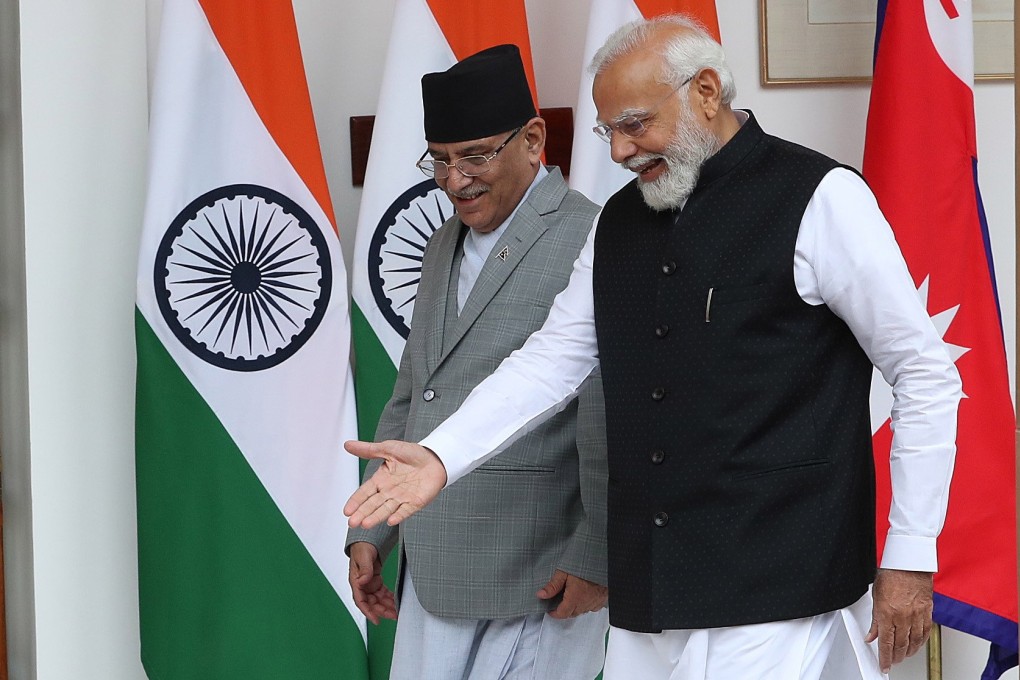Will Nepal PM’s ‘historic’ India trip, new trade deals, be enough to mend strained ties?
- PM Dahal’s visit has not addressed key Nepali concerns, such as the Kalapani border row and implementation of previous bilateral projects, one analyst says
- Both leaders, however, talked up the bilateral relationship, with Dahal calling India an ‘important partner’ and Modi pledging to take ties to ‘Himalayan heights’

India and Nepal signed a series of trade deals last week, but that may not be enough to smooth bilateral ties amid a border dispute and growing anti-India sentiment within the landlocked Himalayan country, analysts have said.
The South Asian neighbours sealed a number of projects – built with Indian aid – during Nepali Prime Minister Pushpa Kumar Dahal’s meeting with his Indian counterpart Narendra Modi, including a 17.4km cross-border railway line connecting Kurthal and Bijalpura.
New Delhi also approved a trilateral power transaction, whereby Nepal will be able to export 40 megawatts of power to Bangladesh via India.
While Delhi’s approach of providing economic aid was one way to boost ties following years of increasing anti-India sentiment, both sides sidestepped discussions on thorny issues. Analysts said Dahal’s visit did not address many of Nepal’s concerns, despite the prime minister having promised it would be a “historic” trip.
“Nepal’s priorities were quick implementation of previously agreed projects and agreements, settlement of the border dispute at Kalapani and the Indian help for full operationalisation of the Bhairahawa International Airport,” said Nishchal Pandey, director of the Kathmandu-based Centre for South Asian Studies.
“However, the visit has scuttled these primary concerns and dwelt on the peripheral issues more important to India.”
The two countries have been disputing control over a region called Kalapani, since the 1816 Treaty of Sugauli between Nepal and British India which agreed that the Kali river would form Nepal’s western boundary. Neither side has been able to agree on the origin of the river, and its location – at a trijunction between China, India and Nepal – complicates the issue.
